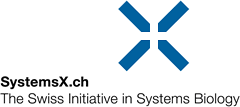TbX
Systems Biology of Drug-resistant Tuberculosis in the Field
Drug-resistant organisms endanger the successful treatment of tuberculosis. However, many factors and mechanisms leading to the development and spread of resistance are still largely unknown. The aim of this project is to acquire new knowledge in this area and to develop an extensive model to simulate the involved processes.
Multidrug-resistant (MDR) strains of Mycobacterium tuberculosis (Mtb) are a threat to the global control of tuberculosis (TB). Although many mutations causing resistance to various anti-TB drugs are known, there still is a lack of understanding of the forces driving the transmission of MDR-TB. Drug resistance mutations can be conceptualized as "internal" perturbations of the baseline metabolic profile of the bacteria. These occur as a consequence of "external" perturbations, in particular the exposure to drugs. Moreover, a pre-existing phylogenetic diversity in Mtb can be thought of as a "natural" perturbation in this context. We hypothesize firstly that external, internal, and natural perturbations are reflected in the molecular phenotype of Mtb and secondly that particular in vitro phenotypic profiles are predictive of the successful transmission of MDR-TB in patient populations.
We will test these hypotheses by addressing the following objectives:
- Define and model the molecular phenotypic space across the phylogenomic diversity of Mtb.
- Measure the impact of drug resistance and compensatory mutations on the Mtb phenotype.
- Measure the effect of exposure to anti-TB drugs on the Mtb phenotype.
- Develop a phylogenomic-based model of MDR-TB transmission.
- Define a metabolic profile that is predictive of high in clinico fitness in MDR Mtb.
Validating the metabolic models
We will use a combination of population genomic analyses of clinical strains of Mtb and detailed transcriptional, proteomic, metabolomic, and lipidomic profiling of a subset of rationally selected strains both in the presence and absence of the relevant drug(s). These data will then be integrated into modified metabolic models starting with the existing models that have been developed by others. Moreover, we will construct phylodynamic models of TB transmission based on whole-genome sequences. The latter will serve as the gold standard for the validation of our metabolic models that are proposed to be predictive of successful MDR-TB transmission.
| Principal Investigator | Prof. Sebastien Gagneux, Tuberculosis Research Unit, Swiss Tropical and Public Health Institute / University of Basel |
| Involved Institutions | Swiss Tropical and Public Health Institute / University of Basel, ETH Zurich |
| Industrial Partner | BioVersys AG, Basel |
| Number of Research Groups | 8 |
| Project Duration | Apr. 2014 – Mar. 2018 |
| Approved SystemsX.ch Funds | CHF 2.999 million |
Updated March 2014


